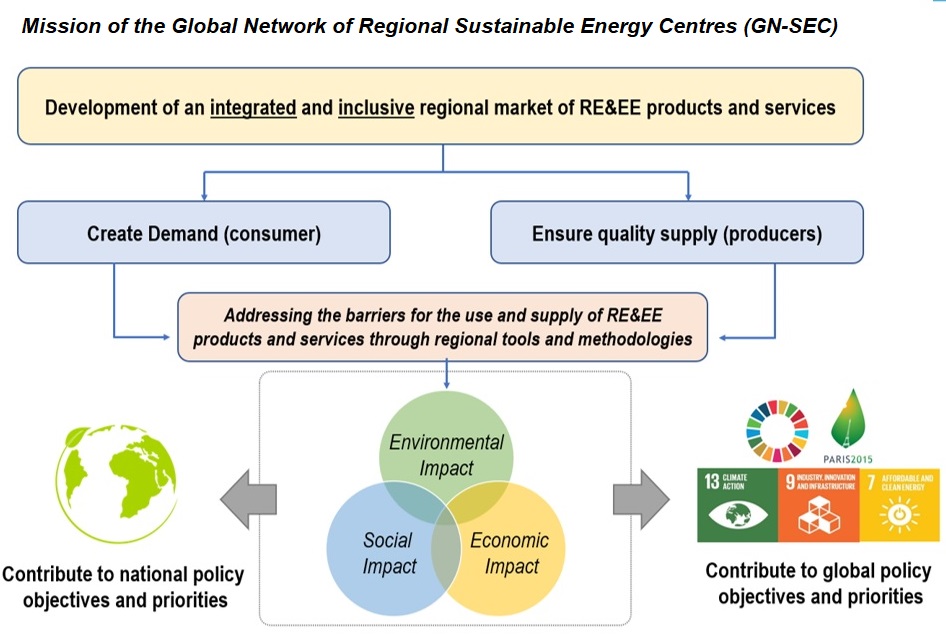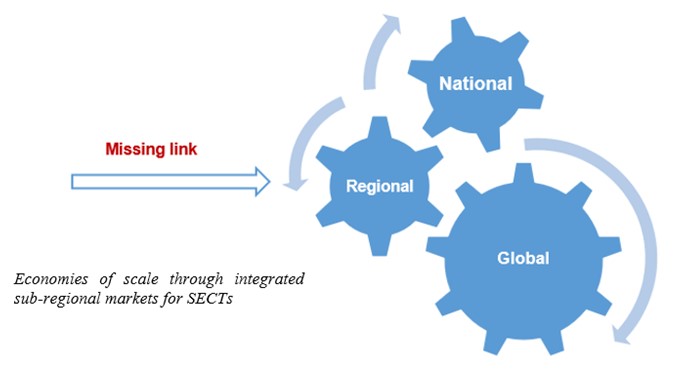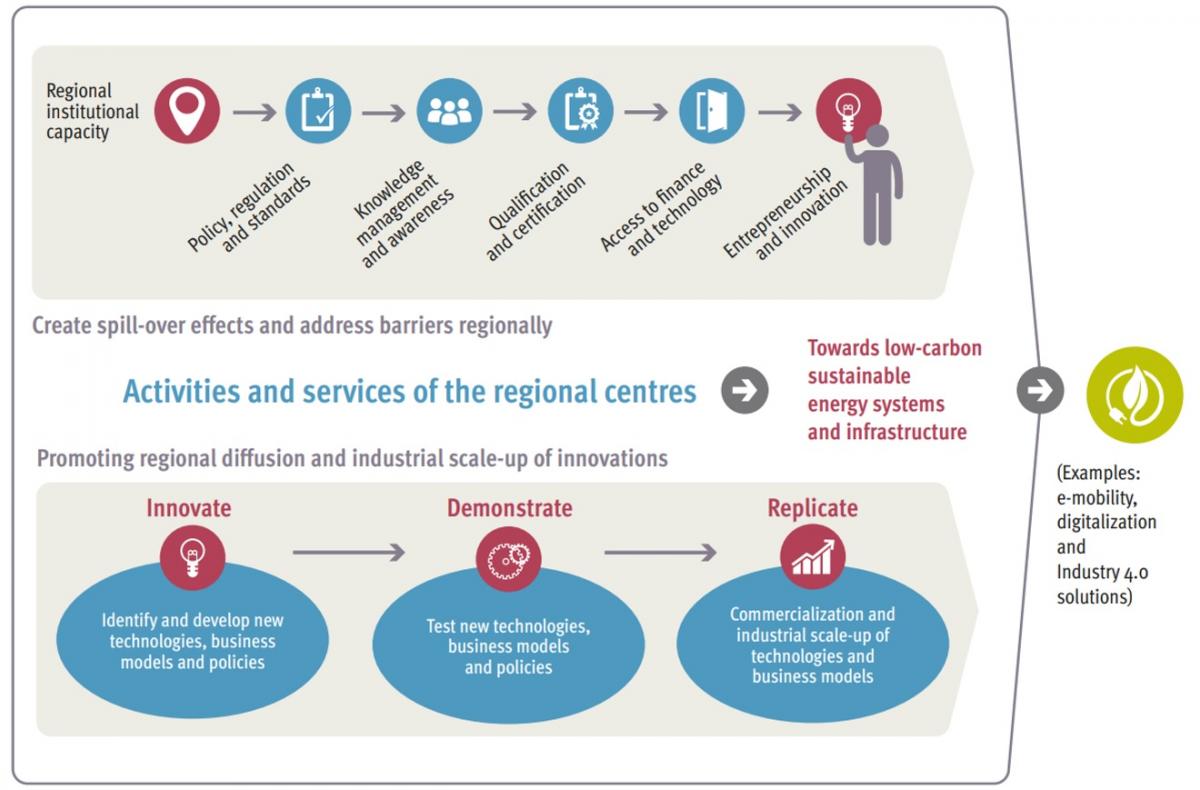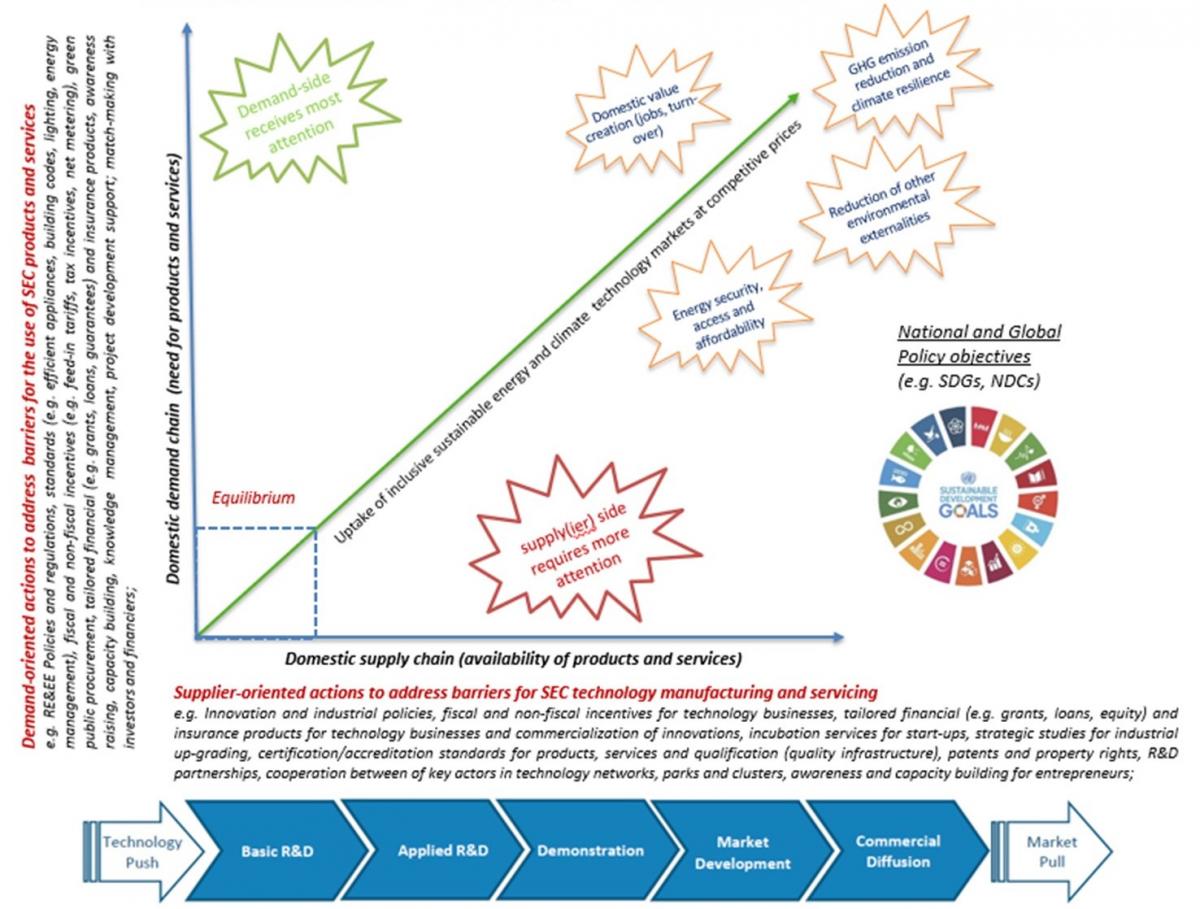Mission of the GN-SEC
The regional sustainable energy centers aim to accelerate the energy and climate transformation by creating economies of scales, equal progress and spill-over effects between countries. In partnership with Member States and other sub-regional players (e.g. power pools, utility organisations, regulatory authorities, regional banks), the centres work towards the creation of integrated regional markets for renewable energy and energy efficiency products and services by setting targets, policies, standards and incentives, as well as de-risking of investments through the provision of reliable data, analytics, bundling of projects and convening power. Each of the ceners have their own priorities depending on the demand in Member States.

Some of the barriers for the development of sustainable energy markets can be addressed more effectively and at lower cost at sub-regional level. The GN-SEC centers play an important role in setting domestic priorities, contribute to donor harmonisation and coordination, as well as ensuring the sustainability and availability of results and deliverables after project closure. The centres provide the RECs with the urgently needed technical capacities to coordinate and monitor the implementation of sub-regional energy and climate policies/regulations on national level.

Moreover, they serve as knowledge resource facility, and provide advice to Member States on how best to manage the transition towards sustainable energy. Through cross-border approaches and methodologies, the centres complement and accelerate national efforts in the areas of policy and regulation, capacity development, knowledge and data management, awareness raising, as well as the promotion of investment, innovation and entrepreneurship. The centres serve as a hub for all kind of domestic and international partnerships.

The GN-SEC centres aim at an equilibrium between market demand for and supply of sustainable energy products and services. They lie particular emphasis on actions directed to increase the domestic value creation of investments in sustainable energy. In this context, the centres focus on sub-regional actions to strengthen the productive (manufacturing, assembling, servicing) and innovation capacities of domestic businesses and entrepreneurs (e.g. fiscal and non-fiscal incentives, incubation, acceleration, R&D, quality infrastructure and standards, qualification, IPs, cluster building).

The GN-SEC is addressing an important missing link in international sustainable energy and climate cooperation. For several reasons, the sub-regional level is often ignored and not used systematically as a (cost-)effective tool to promote equal progress, coordination, economies of scales. Sub-regionally, the energy transformation tends to remain uncoordinated between countries and common barriers and opportunities are not addressed jointly for the benefit of all. Duplication, fragmentation and lack of agenda-setting by the region lead often to inefficient use of international funding and opportunity costs. Many regional organizations lack of resources and capacities to overlook and monitor complex political and technical implementation processes. At the same time, global climate and energy agreements and related financing instruments face challenges due to the limited national absorption capacities.








